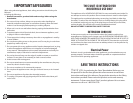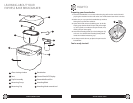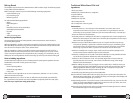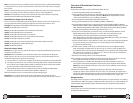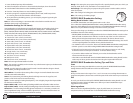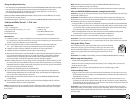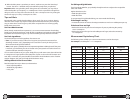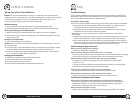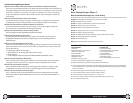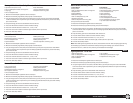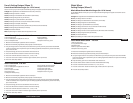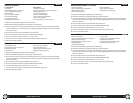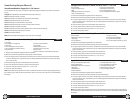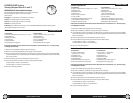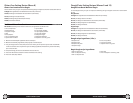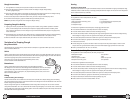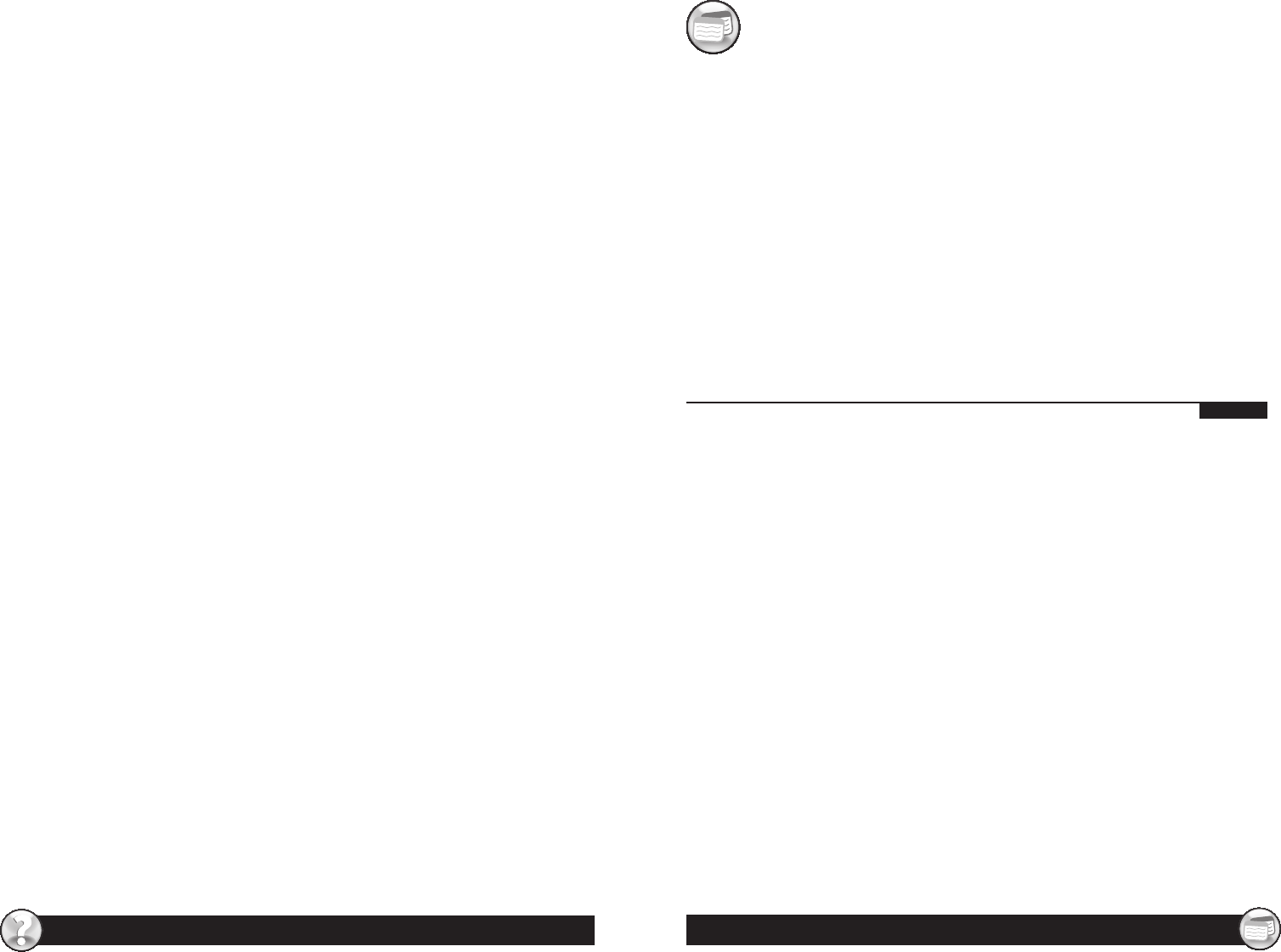
www.oster.com
18
www.oster.com
19
Troubleshooting Baking Problems
What do I do if the sides of the bread collapse and the bottom of the bread is damp?
There are several possible solutions. The bread may have been left in the bread pan too
long after baking. Remove the bread from the pan sooner and allow it to cool. Try using
more fl our (a teaspoon at a time), or less yeast (1/4 teaspoon at a time), or less water
or liquid (a teaspoon at a time). This could also be the result of forgetting to add salt
to the recipe.
What do I do if the bread has a heavy, thick texture?
Try using less fl our (a teaspoon at a time), or more yeast (1/4 teaspoon at a time). This
could also be the result of using old fl our or the wrong type of fl our for the recipe.
What do I do if the bread is not baked completely in the center?
Try using more fl our (a teaspoon more at a time), or less water or liquid (a teaspoon
less at a time). Do not lift the lid too often during baking.
What do I do if the bread has a coarse or holey texture?
This is usually the result of forgetting to add salt to the recipe.
What do I do if the bread rose too much?
Try using less yeast (1/4 teaspoon less at a time). This could also be the result of
forgetting to add salt to the recipe or forgetting to put the kneading blade into
the baking pan.
What do I do if the bread did not rise enough?
There are several possible solutions. Try using less fl our (a teaspoon less at a time), more
yeast (1/4 teaspoon more at a time), or less water (a teaspoon less at a time). This could
also be the result of:
• forgetting to add salt to the recipe,
• using old fl our or the wrong kind of fl our for the recipe,
• using old yeast,
• or not using hot water (except for the EXPRESS BAKE Breadmaker cycles).
What do I do if the bread has a oured top?
This is usually a result of using too much fl our or not enough water. Try using less fl our
(a teaspoon or less at a time), or try using more yeast (1/4 teaspoon less at a time).
What do I do if the bread is too brown?
This is usually the result of adding too much sugar to the recipe. Try using less sugar
(1 tablespoon at a time). You can also try selecting a lighter crust color selection.
What do I do if the bread is not brown enough?
This is usually the result of repeatedly lifting the lid of the bread machine or leaving
the lid open while the bread is baking. Be sure the lid is shut while the breadmaker is
in operation.
RECIPES
Basic Setting Recipes (Menu 1)
Basic bread machine stages (for 1.5 lb. loaves)
For the basic cycle, you can expect the following things to happen as the timer counts down to zero.
To begin: The ingredients are kneaded for the fi rst time (5 minutes)
At 3:13, the dough rests for 5 minutes
At 3:08, the dough is kneaded for the second time (20 minutes)
At 2:48, the dough begins to rise (39 minutes)
At 2:09, the dough is “punched down” (10 seconds)
At 2:09, the dough continues to rise (25 minutes and 50 seconds)
At 1:43, the dough is shaped (15 seconds)
At 1:43, the dough comes to the last period of rise (48 minutes and 45 seconds)
At 0:53, the dough begins to bake (53 minutes)
At 0:00, the bread is fi nished.
Note: Rapid Setting will reduce total time by about an hour.
Traditional White Bread
Basic
1.5 pound loaf
1 cup water
2 tablespoons butter or margarine
1 and 1/2 teaspoons salt
3 cups bread fl our
2 tablespoons dry milk
1 tablespoon sugar
2 teaspoons active dry yeast
1 Measure and add liquid ingredients to the bread pan.
2 Measure and add dry ingredients (except yeast) to the bread pan.
3 Use your fi nger to form a well (hole) in the fl our where you will pour the yeast. Yeast must NEVER
come into contact with a liquid when you are adding ingredients. Measure the yeast and carefully
pour it into the well.
4 Snap the baking pan into the breadmaker and close the lid.
5 Press the “Menu Select” button to choose the Basic setting.
6 Press the “Loaf Size” button to choose 1 lb., 1.5 lb., or 2 lb.
7 Press the “Crust Color” button to choose light, medium, dark or rapid crust.
8 Press the “Start/Stop” button.
2 pound loaf
1 and 3/8 cups water
2 tablespoons butter or margarine
1 and 3/4 teaspoons salt
4 cups bread fl our
2 tablespoons dry milk
2 tablespoons sugar
2 and 1/4 teaspoons active dry yeast



